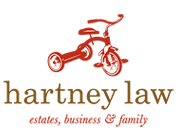Yes. You Should.

You should have one of them. Foundational estate planning, meaning the very minimum estate planning everyone should have (before ever thinking about irrevocable trusts, charitable trusts, life insurance trusts etc.,) comes in only two flavors.
Will-based planning or Trust-based planning.
Pick one.
Figuring out which one is the right one for you, however, is a more complex affair. Each of these choices has pros, cons, and implications for those who come after you.
And since I’m a big fan of simplicity, I’ll try break it down for you here.
Wills do not avoid probate.
This is the #1 most common misconception about planning and most damaging mistake I see people make. People wave a Will in front of me and say, “See! I have a Will. I don’t have to go to probate!” First of all, it’s not you who’d be having to go through probate. It’s your family. Second, a Will is the document we send to the court where you live to OPEN PROBATE. This type of probate is called “testate” probate, meaning the person left a Will instructing what to do with their leftover assets. An “intestate” probate is for people with no Will. In that case, the probate court simply applies the statutory defaults to the estate ultimate distribution.
Wills do not avoid conservatorships.
A critical, but often overlooked area of planning is what happens when someone is living but mentally incapacitated—often in the elder years—by stroke, dementia, or other chronic illnesses. Having a Will does absolutely zero for this situation and this kind of planning could force your family into a “conservatorship.” Gasp! Ching, cha-ching-ching.
The larger and more complex an estate is, the more of a pain (and expense) probate is.
You may indeed want to avoid probate, and I support you in that, 100%. Probate stinks no matter where or who you are. But the more money you have, and the more complex your estate composition, the more pain probate will cause your family. There are a very few families for whom probate is either a non-issue (not necessary) or not a burden (because it’s a small estate).
There are only THREE ways to avoid probate, each of these ways has pros and cons.
- Transfer on Death or Pay on Death Beneficiaries. Some assets can be designated to people after you die. Bank accounts, brokerage accounts, bond accounts, cryptocurrency accounts (some), retirement accounts of all kinds, HSAs, and life insurance policies. However, you should know not every beneficiary designation ends smoothly with the final transfer of assets. Sometimes, your creditors can CLAWBACK assets distributed by designation through probate. TOD/POD beneficiaries will not be able to receive any of the protections you could offer your them via a trust. TOD/PODs are not at all helpful during an incapacity situation, and aren’t available for real estate, businesses, or some other assets.
- Joint Tenancies. Ever see an account statement with the acronym “JTWROS”? That means, “Joint Tenancy with Right of Survivorship.” Joint tenancy with right of survivorship is very helpful when a spouse dies, leaving their beloved their property easily, seamlessly, and with nary a hitch. Except, there are some very big downsides to joint tenancies. Here are three biggies:
- Liability: Joint tenancies expose the asset to the liability of all parties in its entirety. That means if your spouse has a car wreck and is sued, and loses, the entirety of you home could be taken away from both of you even though your spouse only owns half of the value of the home.
- Disability: If one owner in a joint tenancy is disabled, the other party may have to get a conservatorship or court order to manage the property or asset on behalf of the disabled party. For example, if your spouse has a stroke and is mentally disabled for a long period of time, and you have to sell the house, your spouse is not legally able to sign a sales agreement to sell the property. You might be forced to get a court order via conservatorship—costing you a lot more in legal fees than if you thought about this possibility in advance.
- Probate: While a joint tenancy is a rather easy way to transfer assets on the first spouse’s death, it is ineffective on the second spouse’s death. Very often estate messes occur not when the first spouse dies, but when the second spouse dies, often resulting in the dreaded probate for the surviving family members.
- Liability: Joint tenancies expose the asset to the liability of all parties in its entirety. That means if your spouse has a car wreck and is sued, and loses, the entirety of you home could be taken away from both of you even though your spouse only owns half of the value of the home.
- Trusts. Spoiler alert! I’m a trust attorney and recommend the use of trusts frequently. Trusts are the estate planner’s multitool–solving an array of issues in one go. Trusts are not for everyone. But they are for a LOT of people—and not just the “wealthy.” A trust is a fictitious entity created out of paper (or pixels) into which you put your assets. It is like a “little red wagon,” that contains your assets, so when bad things happen your assets can be immediately, seamlessly, and easily transferred to someone you trust (hence the name) for you.
Like I said, trusts are not for everyone! I often ask people what their net worth is at a first meeting to help identify whether a trust is “worth it” for them. While we don’t use trusts exclusively for saving money at death, that does tend to happen. The larger the estate, the more savings from avoiding probate…usually.
Here are some factors weighing IN FAVOR OF a trust-based estate planning (and against a Will-based plan). You:
- Have a child or children who are still minors;
- Have a child or children with a disability;
- Have serious family dysfunction;
- Are entering or in your peak earning years;
- Desire to keep courts out of your family affairs;
- Value privacy in your personal or family business;
- Need to keep someone out of your life and estate;
- Have unusual assets that are hard to manage, hard to value, or hard to transfer;
- Have a complex estate composition;
- Own assets in multiple states or countries;
- Have special desires for the future of your loved ones;
- Have had a bad probate or conservatorship experience in the past;
- Have a diagnosis of a disabling or terminal condition;
- Want to ease the way for your successors and guardians;
- Want to provide for a spouse or unmarried partner, while ensuring your kids inherit;
- Want to protect your family from future financial loss, vulnerability, or financial self-abuse;
- Have been married more than once;
- Have children from a prior relationship;
- Have or may inherit assets you want to protect.
Some factors weighing AGAINST a trust-based estate planning (and for a will-based plan). You:
- Have a low tolerance for complexity in pre-planning;
- Don’t want to pay the expense of planning in advance;
- Have a modest estate with little complexity;
- Don’t feel a desire or concern to protect your family from future liabilities,
Now, with these factors in mind, here are some guidelines in assessing whether you should pursue a Will-based plan or a Trust-based estate plan:
- If your personal net worth is less than $500,000, not growing, and the composition of your estate is not complex, then a Will-based estate plan is probably sufficient.
- If your personal net worth is over $500,000, you should consider having a trust-based plan. If several of the “IN FAVOR” factors above are present, those would tip the scale in toward having a trust-based estate plan.
- If your net worth is over $1,000,000, you should seriously consider having a trust-based plan unless you have a very simple, and possibly shrinking estate. If your estate is shrinking, that reduces the weight in favor of a trust.
In ANY event, please consult an attorney to analyze your specific needs, concerns, desires, estate composition, and life circumstances to make the final decision! I hope this helps you in discerning what kind of estate plan is best for you.

 A later-in-life attorney, Martha Hartney opened the practice in 2010 to serve the people she loves because she is committed to helping moms and dads bring their greatest gifts into parenting fearlessly and with joy and making sure children are completely cared for if something happens to their parents.
A later-in-life attorney, Martha Hartney opened the practice in 2010 to serve the people she loves because she is committed to helping moms and dads bring their greatest gifts into parenting fearlessly and with joy and making sure children are completely cared for if something happens to their parents.
